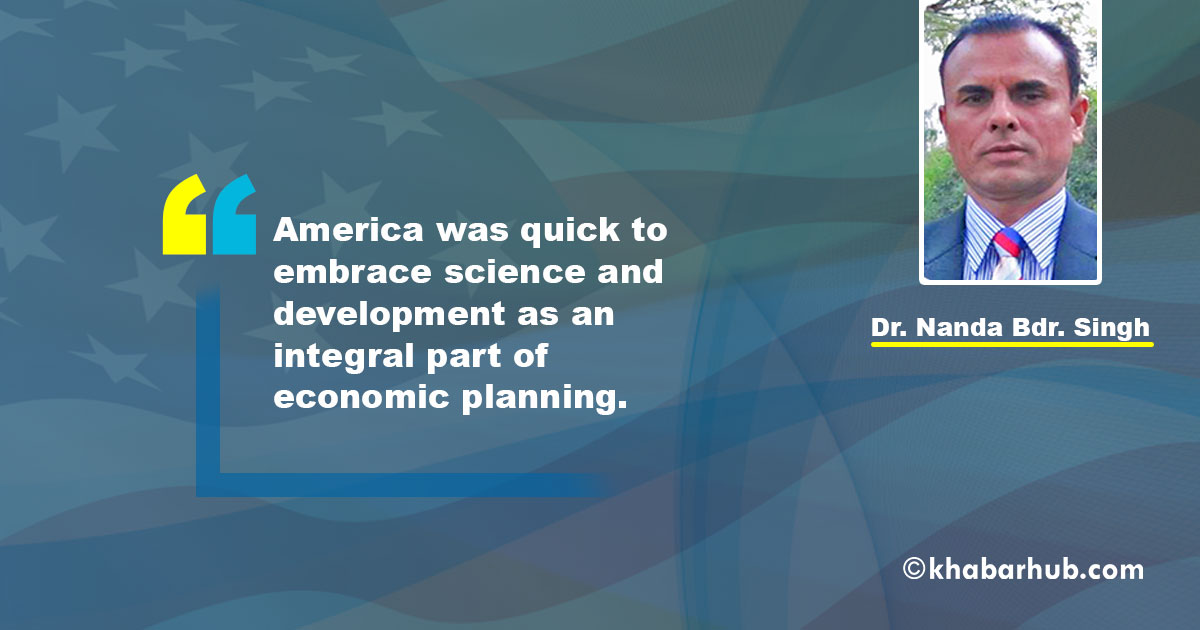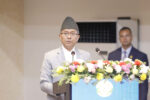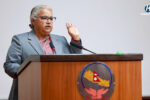The mega-saga of the American industrial revolutions would be incomplete without explaining the innovations in the transportation and automobile sectors that geared up the pace of the American economy along with energy as another side of the same coin.
New industrialists emerged in America during the late 1990s. Now America has become the home of global talents and innovations in many areas of science and technology. Star war technology, genetic engineering science, molecular biotechnology, recombinant DNA technology, nanotechnology, genomics, system biology, artificial intelligence, GPS and GIS technology, radar technology, precision medicine, information technology, and internet system have really changed American life in a new direction. It has a tremendous impact on global life. Who knows the newest technology and innovations will be the winner in the 21st century? Mere talk of nationalism without using the latest technology to protect our patent rights will be like bringing storm in a cup and becoming a loser in the future.
Until 1920s/30s, industrialists only talked of science or research, but highly ignored that of development which was not fully recognized until the 1950s.
All those things were possible only because of the allocation of the huge proportion of financial resources on Research and Development (R&D) in the American federal budget, specifically after 1947. R&D has been aimed at discovering solutions to problems by creating knowledge and new goods. Creation of new knowledge is research and if it is applied, it will produce new goods which are known as development (D). Such kind of production of new goods does result in ownership of intellectual property rights in the form of patents all over the world. Until 1920s/30s, industrialists only talked of science or research, but highly ignored that of development which was not fully recognized until the 1950s.
America was so quick to embrace science and development as an integral part of economic planning more than Europe and Japan. That’s why America has become the number one leading nation in the world in terms of highest money allocated for R&D with U$ 581.03 billion in 2019 in the world followed by the People’s Republic of China with U$ 519.22 billion in the 2nd rank and Japan with U$ 193.17 billion in the 3rd rank.
America endeavored a lot to increase the amount R&D in the federal government especially after the publication of 4000 biographies on “men researchers” who carried out research works in the USA by James Mckeen Cattell, the editor of Science in 1906.
But recently in terms of the biggest spender on R&D is Israel at 4.25% followed by South Korea at 4.19%, and Japan at 3.5%, respectively. If we calculate R&D expenditure of America and China in terms of percentage, America and China stand only for 2.8% and 2.07% of the total GDP.
The G20 accounts for 92% of the global spending on R & D. but 94% of patents granted by the US Patent and Trademark Office stem from G20 countries. About 87% i.e. 6.74 million out of 7.76 million researchers live in G20 countries. USA, Europe, and Japan are still leading global research with the ownership of 83% of total patents i.e. 8 out of 10 triadic patents belong to them. Very rapidly, China is chasing America in terms of R&D expenditure and patent ownership in many aspects after 1995.
America endeavored a lot to increase the amount R&D in the federal government especially after the publication of 4000 biographies on “men researchers” who carried out research works in the USA by James Mckeen Cattell, the editor of Science in 1906. Thereafter, various American presidents gave deep thoughts to the innovations and discoveries by the increasing financial resources. Special credits go to many, including famous politician and scientist Benjamin Franklin who invented lighting conductors and many other innovations. People like Benjamin Franklin and president of America Herbert Hoover (1928-32) contributed a lot to embrace Science, technology, and innovation in American life. Science for innovation and the socioeconomic benefit was promoted by President Hoover who made a plea for pure research as being the soil of civilization. They institutionalized to allocate federal budgets for R & D.
That is the main reason why American education is more attractive to a substantial number of youths in the world. They have put a lot of emphasis on allocating financial resources for areas like commerce, energy, transportation, agriculture, environmental agencies, defense activities, general science, health, space, and university as well as medical sciences. One important thing to understand and realize is that the defense activities carried out by American armies was not, is not and will not be only military wars and fights in the world, but many talented American army personalities seem to get engaged in exciting scientific innovation for the much safer world in the face of terrorism.
American scientists and political leaders were equally worried and committed to increasing the spending capacity of the federal budget for the prosperity and development of science and technology in America.
One of the best examples of the US army research is the 36 satellites being regularly handled by the US armies which are very pertinent to all of us as the internet signal users! Many communications system and about 300 space missions are assigned and operated by the US armies. This year, President Donald J. Trump sent a proposed Fiscal Year (FY) 2019 budget request of $716 billion for national security, of which $686 billion for the Department of Defense with a priority to enable the department to compete, deter, and win. Each and every organ of the US nation is engaged in research and innovation including its army as well.
American scientists and political leaders were equally worried and committed to increasing the spending capacity of the federal budget for the prosperity and development of science and technology in America.
American science and technology policy truly began to revolve around Albert Einstein’s quotation as “Imagination is more important than knowledge, the true sign of intelligence is not knowledge, but imagination”. Based on this philosophy, America is digging the root of knowledge for innovation. In this way, America is going ahead with the newness of knowledge and research findings.
Now comes the turn of Nepal, if we really want to embrace innovative science and technology in the 21st century for the prosperity and betterment of the Nepali society, we have to allocate at least 1.5 to 2% of our federal budget for the overall development of various sectors in R&D such as University R&D, Medical R&D, Agricultural R&D, Industrial R&D, Energy R&D and Tourism R&D in Nepal to name a few. What I understand is that to make a nation prosperous, we should have a visionary but honest leader, availability of natural mineral resources, and the massive investment in R&D areas for accelerated prosperity and development. We all have to embrace it sooner or later if we want to develop our nation quickly.
(The author is the Professor at the Central Department of Zoology, Tribhuvan University.)
Views expressed in this article are the author’s own and do not necessarily reflect the stance of Khabarhub.









Comment